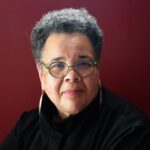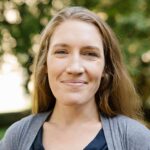Middle Ages
Syllabi - Topic: Middle Ages - 15 results
Select an item by clicking its checkboxA 1999 course by Bobbi Patterson at Emory University approaches "the early and middle stages of the Christian story by identifying and tracking how and why certain issues or questions began to predominate in that story."
A 2010 course by Donald Fortson at Reformed Theological Seminary "focuses on the key persons, movements, and ideas that have made significant contributions to the history of the church" in the early and medieval eras.
A course by Garth Rosell at Gordon-Conwell Theological Seminary "is a a basic introduction to the history of the Christian church from its founding at Pentecost to the beginning of the Protestant Reformation."
A 2017 course by Jim Papandrea at Garrett-Evangelical Theological Seminary "is a survey of the history of the Christian church, including its doctrines and practices, from the beginning into the middle ages . . . with special emphasis on the first five centuries."
A 2001 course by Ann Matter at the University of Pennsylvania "introduces students to the major intellectual issues of Christianity from the period of the formulation of orthodox theology (the third to the fifth centuries), through the early medieval era, to the dawn of scholastic theology around the year 1000. . . . several aspects of social and political history will also be considered, for example, the growth of ascetic movements and the monastic ideal, relationship between Christianity and the Roman Empire, and the role of women in Christian history."
A 1998 course by Timothy Gregory at Ohio State University "covers the history of the Byzantine Empire from the end of Iconoclasm (843) to the fall of Constantinople to the Ottoman Turks (1453)."
A 2000 course by Paul Hyams at Cornell University surveys 'the first Christian centuries up to the eve of the Reformation" with respect to theological and canonical Christian marriage. Other topics "such as homosexuality, rape/abduction, prostitution, bawd and literary attitudes towards sexuality" will also be considered.
A course by Tarmo Toom at the John Leland Center for Theological Studies surveys "the main theological issues, theologians, and religious movements from 'semi-Pelagianism' to Nominalism, from the 5th century to the 15th century."
A 2009 course by David Ratke at Lenoir-Rhyne University surveys "major developments in worship, thought, and life of Western Christendom during the Medieval Period from Gregory the Great to the Council of Constance."
A 2015 course by Deeana Klepper at Boston University "explores the variety and evolution of Christian beliefs and practices in medieval Europe from the fifth century CE (emergence of distinctive Latin and Greek Christianities) through the early sixteenth century (Reformation) within and outside formal Church structures."
A course by Dan Eppley at McMurry University considers "different perspectives on the relationship between civil and religious authorities from the Christian past."
A 2012 course by Gordon Jensen at Saskatoon Theological Union covers Christianity between A.D. 500-1500.
A 2014 course by Anna Marie Johnson at Garrett-Evangelical Theological Seminary surveys "the relatively recent history of Christianity, from the late Middle Ages (beginning around 1500) to the present time."
A 2014 course by Jim Panandrea at Garrett-Evangelical Theological Seminary examines "on the life and experience of the average Christian, as well as the major events of the medieval period."
A 2010 course by Alexander Hwang at Louisville Presbyterian Theological Seminary introduces "to the lives and thoughts of four significant medieval theologians each representing a different medieval context: Prosper of Aquitaine (380-455), Anselm of Canterbury (1033-1109), Thomas Aquinas (1225- 74), and Julian of Norwich (1342-1423)." Special emphasis is "on the theme of grace and freedom, with attention to how these theologians integrate practice and belief, spirituality and theology."

